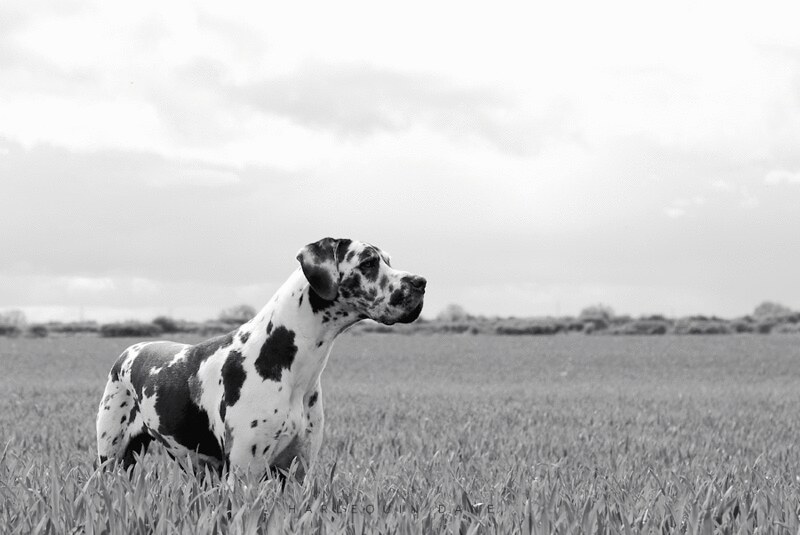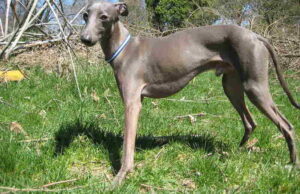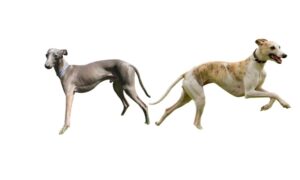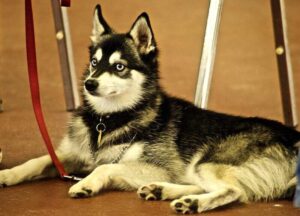The Great Dane is a breed of dog that is truly larger than life. These majestic canines are known for their impressive size, regal bearing, and gentle temperament. The Great Dane breed originated in Germany, where they were initially bred for hunting large game such as boar and deer. Their size, strength, and courage made them well-suited for this purpose.Over time, they’ve were introduced as guardians and human companions. Despite their imposing stature, they are often referred to as gentle giants, making them beloved companions for families and individuals alike. .
Great Dane at a glance
| Characteristic | Description |
|---|---|
| Temperament | Gentle, patient, loyal, calm |
| Social Behavior | Good with children and families, can be reserved with strangers, generally good with other pets |
| Training Needs | Highly trainable, respond well to positive reinforcement, require early socialization |
| Grooming | Moderate grooming needs, regular brushing to control shedding |
| Care | Need moderate exercise, but not as high as some other large breeds |
| Physical Traits | Massive size, muscular build, short smooth coat, various colors |
| Adaptability | Can adapt to various living situations with proper exercise and training |
| Nutrition | High-quality diet with appropriate protein and calorie levels for their size |
| History | Originally bred in Germany for hunting and protection |

Temperament
Great Danes are known for their gentle and patient nature, making them excellent companions for families with children. They are loyal and affectionate with their owners, yet calm and reserved around strangers. Proper socialization and training from an early age are crucial to prevent potential shyness or fearful behavior.
Social
While Great Danes can be reserved with strangers, they are typically good with children and other family members, especially if raised with them from puppyhood. Early socialization is essential to ensure that they are comfortable around people and other animals.
Training
Great Danes are highly trainable and respond well to positive reinforcement techniques. However, their size and strength require firm handling and consistency during the training process. Early obedience training and socialization are crucial to establish a strong bond and ensure they understand boundaries and acceptable behavior.
Grooming
Great Danes have a short, smooth coat that requires moderate grooming. Regular brushing is necessary to control shedding and distribute natural oils throughout their coat. Occasional bathing and ear cleaning are also recommended to maintain their overall hygiene.
Care
These large dogs require moderate exercise, such as daily walks or playtime in a secure, fenced-in area. While they have relatively lower exercise needs compared to some other large breeds, it’s essential to provide them with enough physical and mental stimulation to prevent boredom and destructive behaviors.

Physical Traits
Great Danes are massive dogs with a muscular build and a short, smooth coat that can come in various colors, including fawn, brindle, black, and harlequin. Their impressive size, combined with their regal bearing, creates a truly striking appearance.
Adaptability
Despite their size, Great Danes can adapt to various living situations, including apartments, if their exercise and training needs are met. They are generally calm indoors and can make good companions for experienced owners who can provide them with the necessary care and attention.
Nutrition
Great Danes require a high-quality diet that provides appropriate levels of protein, fat, and other essential nutrients to support their large size and maintain their overall health and well-being.
Quick Facts:
- Height: 28-32 inches (male), 26-30 inches (female)
- Weight: 120-200 pounds (male), 100-130 pounds (female)
- Life Expectancy: 9-10 years
- Breed Group: Working Group
- Energy Level: Moderate
- Shedding Level: Moderate
- Trainability: Highly Trainable
Great Dane as Pets
Great Danes can make excellent family pets for households with experienced owners who can provide them with proper training, socialization, and care. Despite their massive size, these gentle giants are known for their calm and affectionate nature, making them great companions for children and families. However, their size and strength mean they require firm and consistent training from an early age. They also have moderate exercise needs and may not be suitable for apartments or homes with limited space. With proper care and socialization, they can be loyal, loving, and devoted family members.

Great Dane Price
The price of a Great Dane puppy can vary significantly depending on factors such as the breeder’s reputation, the puppy’s pedigree, and the geographic location. On average, you can expect to pay anywhere from $800 to $2,000 for a Great Dane puppy from a reputable breeder. However, well-bred puppies from champion bloodlines or those specifically bred for show or working purposes can cost even higher, sometimes upwards of $3,000 or more.
FAQ about Great Danes
Can a Great Dane Lure Course? Yes, like most dog breeds, Great Danes can participate in lure coursing events, which is a sport that simulates the hunting of a live prey. Despite their large size, Great Danes have a strong prey drive and can excel in this activity when given proper training and conditioning. Lure coursing allows these powerful dogs to showcase their natural hunting instincts while providing them with an outlet for their energy and a mental challenge.
Can Great Danes Be Left Alone? Great Danes should not be left alone for extended periods, as they can develop separation anxiety, destructive behaviors, and excessive barking. These social and intelligent dogs thrive on human companionship and can become bored or anxious when left alone for too long. If you must leave them alone, it’s recommended to provide them with interactive toys, puzzle feeders, or arrange for a dog walker or pet sitter to keep them company and ensure they get enough exercise and stimulation.
Are Great Danes Good with Cats? With proper socialization and training from an early age, Great Danes can learn to coexist peacefully with cats. Their gentle and patient nature makes them generally good with other pets, including cats. However, their large size and prey drive may make them prone to accidentally knocking over or chasing smaller animals, including cats. It’s essential to supervise interactions between Great Danes and cats, especially in the beginning, and provide separate spaces for each pet to have their own territory.




